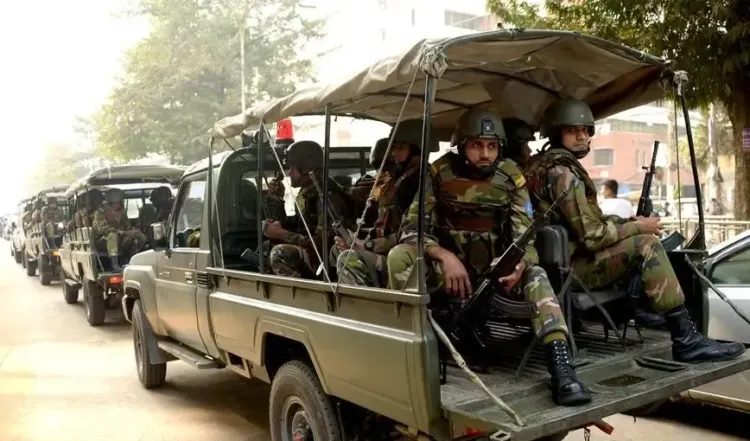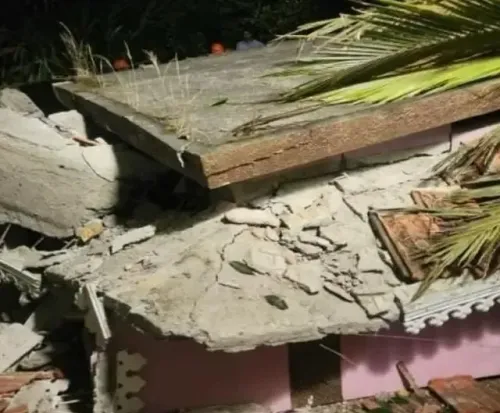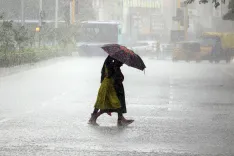Bangladesh Faces Rising Tensions Amid Coup Theories, Army Chief Refutes Claims

Synopsis
Key Takeaways
- Speculation of martial law in Bangladesh increases.
- Military presence in Dhaka fuels coup concerns.
- Army Chief Waker dismisses rumors, urges patience.
- Political tensions rise between military, administration, and students.
- Potential for unrest as factions within the army consider action.
Dhaka, March 25 (NationPress) Speculation is intensifying regarding the potential declaration of martial law or a state of emergency in Bangladesh, as discussions about a military takeover gain momentum. Worries are escalating that the army might take action against the interim government led by Muhammad Yunus, particularly in light of the mounting tensions between the military, the administration, and student-led movements.
The presence of the Bangladeshi Army in Dhaka has further stoked the flames of coup speculation. Reports suggest that troops from the Savar-based 9th Division of the Bangladeshi Army are being mobilized and have commenced their phased entry into the capital.
As per the leading media outlet in the country, Northeast News, insiders from the security establishment indicate that the army is keen on strengthening its grip, particularly in Dhaka.
In a bid to alleviate the escalating speculation, Army Chief General Waker-Uz-Zaman dismissed the rumors on Monday, urging calm and patience.
During a gathering of senior army officials from around the nation at the 'Officer's Address' in Dhaka Cantonment, General Waker praised the military's commitment, professionalism, and resilience, stressing that misinformation should not create distractions.
His comments followed a night filled with speculation concerning the imposition of martial law or emergency regulations as the nation continues to navigate political changes.
General Waker highlighted significant issues, including the deteriorating law and order situation, the threats posed by misinformation, and inflammatory rhetoric.
Stressing that the nation and its citizens remain the army's utmost priority, he urged troops to stay alert and resist provocations.
This statement comes during a period in which the army has been exercising magistracy powers for over six months, assisting the civil administration. These forces were instrumental in the removal of former Prime Minister Sheikh Hasina and the establishment of the interim government under Yunus.
Recently, increasing opposition from political parties and student organizations has led to heightened tensions, creating unease within military ranks. This situation has reportedly prompted certain factions within the army to contemplate actions to address dissent.
However, General Waker cautioned against hasty actions, asserting that such moves could play into the hands of those aiming to destabilize the country.
The evolving situation took another dramatic turn when a student leader made serious allegations against the army chief in a pre-recorded video released on Friday.
Asif Mahmud Shojib Bhuiyan, an advisor to the Ministry of Local Government, Rural Development, and Cooperatives in the interim government, alleged that General Waker had initially hesitated to endorse Muhammad Yunus's role as chief advisor.
Compounding the unrest, another notable student activist, Hasnat Abdullah, recently threatened to initiate a mass movement against the army.
This followed reports of a clandestine meeting between Abdullah and General Waker on March 11, during which the army chief allegedly hinted at the potential re-entry of Sheikh Hasina's Awami League into politics and contesting elections when they occur.
As tensions continue to rise and speculation abounds, Bangladesh finds itself at a pivotal moment, caught between political instability and military oversight.
While General Waker's reassurances aim to alleviate fears of a coup, the significant military presence in Dhaka and increasing opposition to the military indicate that the situation remains precarious.








